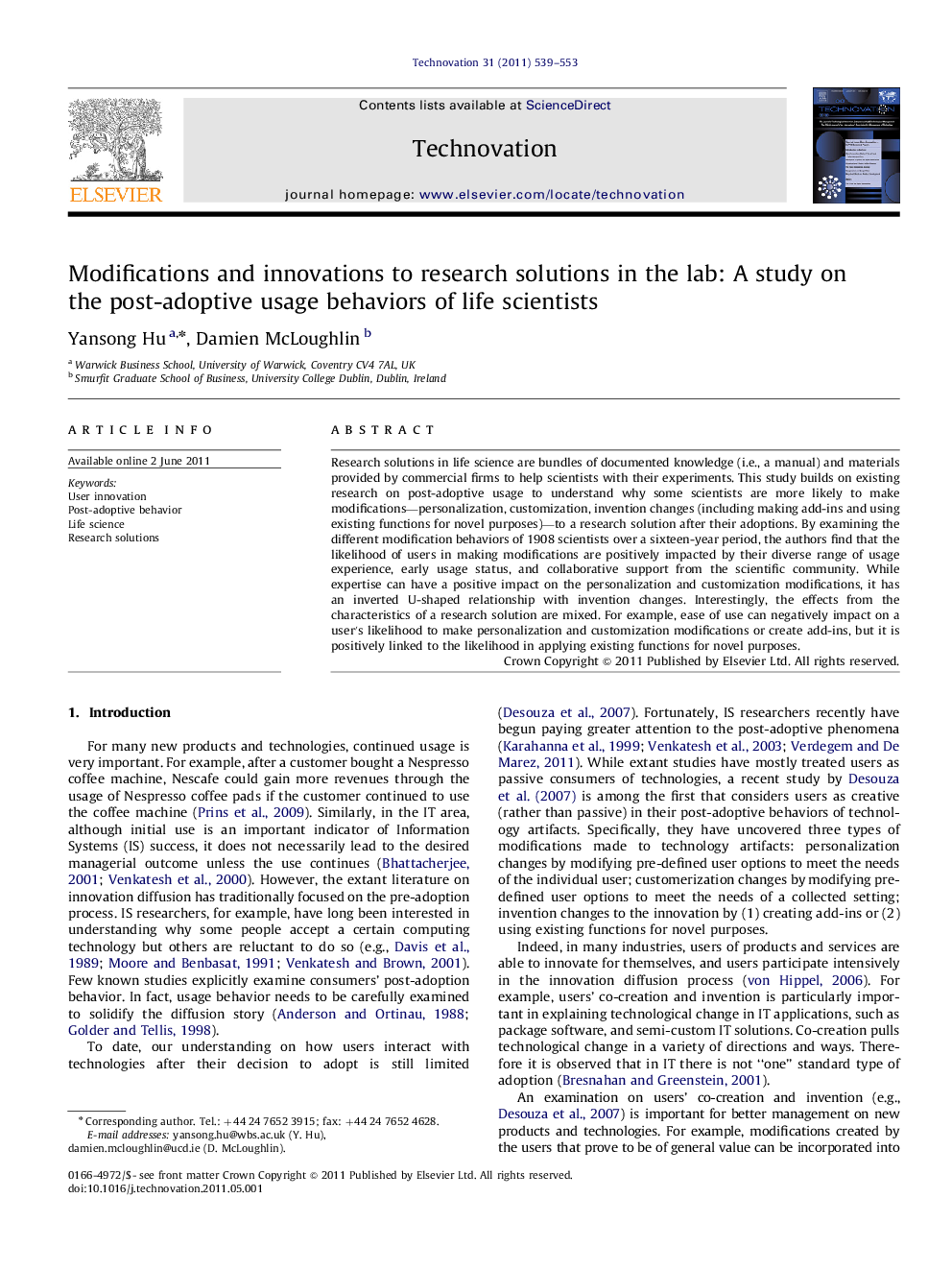| کد مقاله | کد نشریه | سال انتشار | مقاله انگلیسی | نسخه تمام متن |
|---|---|---|---|---|
| 1022122 | 1482959 | 2011 | 15 صفحه PDF | دانلود رایگان |

Research solutions in life science are bundles of documented knowledge (i.e., a manual) and materials provided by commercial firms to help scientists with their experiments. This study builds on existing research on post-adoptive usage to understand why some scientists are more likely to make modifications—personalization, customization, invention changes (including making add-ins and using existing functions for novel purposes)—to a research solution after their adoptions. By examining the different modification behaviors of 1908 scientists over a sixteen-year period, the authors find that the likelihood of users in making modifications are positively impacted by their diverse range of usage experience, early usage status, and collaborative support from the scientific community. While expertise can have a positive impact on the personalization and customization modifications, it has an inverted U-shaped relationship with invention changes. Interestingly, the effects from the characteristics of a research solution are mixed. For example, ease of use can negatively impact on a user′s likelihood to make personalization and customization modifications or create add-ins, but it is positively linked to the likelihood in applying existing functions for novel purposes.
► This study examines why some scientists are more likely to make modifications to a research solution.
► We study modification behaviors of 1908 scientists over a sixteen-year period.
► The likelihood of making modifications is impacted by diversity of usage experience.
► Early usage status, collaborative support and expertise also matter.
► Effects from the characteristics of a research solution are mixed.
Journal: Technovation - Volume 31, Issues 10–11, October–November 2011, Pages 539–553